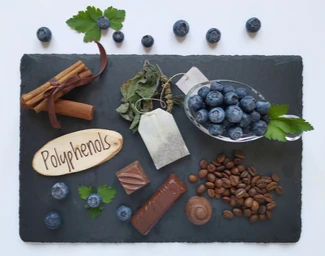The Hidden Risks in Your Favorite Beverage !!
- Indian Health Bureau
- 1 day ago
- 2 min read
"Sip Smart: The Best and Worst Drinks for Beating Kidney Stones"

Does Drinking Soda Cause Kidney Stones?
Soda might be refreshing, but its ingredients could be silently paving the way for painful kidney stones. Let’s break down the science, risks, and smarter drink choices to keep your kidneys healthy.
How Soda Ingredients Fuel Kidney Stones
Kidney stones form when urine can’t dilute high concentrations of minerals like calcium, oxalate, and uric acid. Sodas add fuel to this fire with three key culprits:
High Fructose Corn Syrup
The problem: Fructose metabolizes into oxalate and increases uric acid excretion—both major contributors to stones.
The research: A 2020 review of 13 studies linked high soda intake to increased stone risk, partly due to fructose-driven metabolic changes like obesity and insulin resistance.
Phosphoric Acid
Common in: Colas and some citrus-flavored sodas.
The effect: Acidifies urine, creating an environment where calcium oxalate stones thrive. A 2021 study found phosphoric acid in sodas significantly raised recurrence rates in chronic stone formers.
Caffeine
Double-edged sword: While coffee’s caffeine may protect against stones by increasing urine flow, soda’s caffeine might worsen risk due to added sugars and acids.
Key finding: A 2022 study noted caffeine from non-coffee sources (like soda) could increase stone risk, unlike coffee’s protective benefits.
Diet Soda: Not a Safe Alternative
Switching to diet? You’re not off the hook.
Phosphoric acid remains a staple in many diet sodas.
Artificial sweeteners may alter gut health, indirectly affecting kidney function (though more research is needed).
Better Drink Choices to Prevent Stones
Water The gold standard: Dilutes urine and flushes out stone-forming minerals. Aim for 12+ glasses daily (more if active or in hot climates).
Citrus Juices Lemon/lime water: Citrate in these juices inhibits stone formation. Squeeze half a lemon into your water daily.
Avoid: Grapefruit and cranberry juices, which may raise oxalate levels.
3. Herbal Teas
Benefits: Hydrating and rich in antioxidants. Avoid black tea (high in oxalates).
When to See a Doctor.
Don’t ignore these symptoms:
Severe pain in the lower back/side or abdomen.
Bloody, cloudy, or foul-smelling urine.
Fever/chills (signs of infection).
Early intervention can prevent complications like blockages or infections.
Diet and Lifestyle Tips
Cut back on salt: High sodium increases calcium in urine.
Eat calcium-rich foods: Dairy binds to oxalates in the gut, reducing stone risk.
Limit processed meats: High in purines, which elevate uric acid.
Pro Tip: Carry a reusable water bottle with time markers to stay on track with hydration goals!

Summery Table
Drink | Kidney Stone Risk Impact | Notes |
Water | Decreases risk | Best choice; aim for 2-3 liters/day |
Lemon/lime water | Decreases risk | High in citric acid |
Orange juice | Decreases risk | Potassium citrate offsets risk |
Coffee | Decreases risk | Antioxidants, mild diuretic |
Green tea | Decreases risk | Contains catechins |
Soda/sweetened drinks | Increases risk | High in fructose, phosphoric acid |
Grapefruit juice | May increase risk | Use caution |




Comments